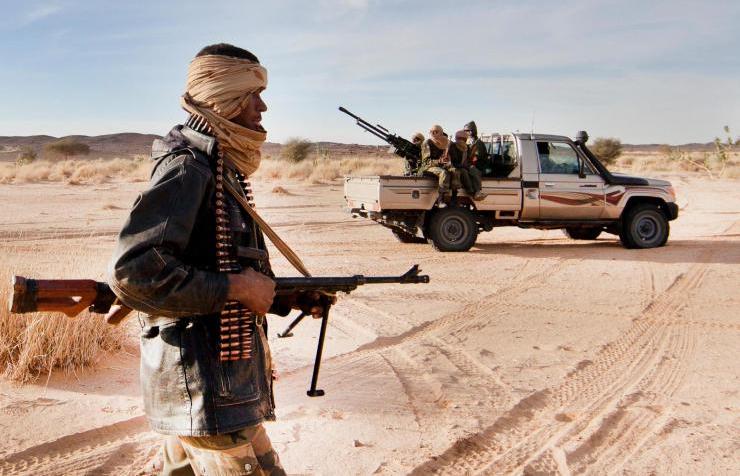
Sahel: exploring nexus between arms and human trafficking — UN report
A dizzying array of illegal weaponry dots market stalls across the Sahel, fueling violence and insecurity in this 6,000-km-wide belt in the middle of Africa, where smuggling networks exploit the ensuring desperation of people, leading to such deadly disasters as the recent shipwreck off the coast of Greece, according to the latest series of reports published by the United Nations.
The latest series in the UN News explores the fight against trafficking in the Sahel, focusing on the illegal arms trade that is fueling conflict and terrorism and, in turn, migrant smuggling. All the armed groups involved in inter-communal tensions, violent religious extremism and terrorism are now dealing with firearms and ammunition, according to a recent report on firearms trafficking published by the United Nations Office on Drugs and Crime (UNODC). As the numbers of group members multiply, so too do business opportunities for traffickers.
The report tracks cases with a view to better understand the phenomenon and its drivers. When Nigerian authorities asked a suspect how his group had spent the $100,000 ransom paid to free the schoolgirls they had kidnapped, he said “we bought more rifles”, according to the report. Over the past decade, a cascade of consequences spilled across the Sahel, home to 300 million people, destabilizing nations and spreading a tide of trafficked weapons into villages, towns, and cities.
As a result of the unabated armed violence, terrorist attacks, and climate shocks in the Sahel, which have displaced three million people and triggered growing numbers of others to flee, migrant smugglers have been reaping rich dividends over the past decade, according to a new threat assessment report by the UNODC. External threats like the crisis in Sudan are creating a “snowball effect” on the region, Mar Dieye, the UN Secretary-General’s Special Coordinator in the Sahel said.
“Not stopping this fire that started from Sudan and then spilled over in Chad and other regions could be an international disaster that will trigger a lot of more migrants,” said Dieye, who also heads the UN Integrated Strategy for the Sahel (UNISS). The latest UNODC report identified other drivers alongside solutions, pointing, for example, to corruption as both a motivator to use smugglers and a key enabler for the crime. Another key driver is the increased demand from men, women, and children seeking to escape worsening violence and the consequent rising food insecurity, according to UNODC.
